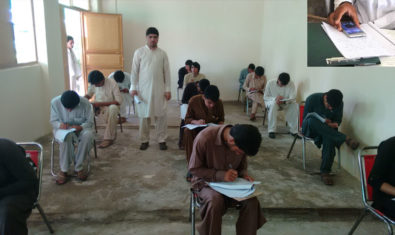Around 50,000 children in Gilgit-Baltistan work as laborers, according to the Gilgit-Baltistan Child Labour Survey 2018-19 report released on Wednesday.
It revealed that at least one in seven children in GB is exploited for work, and estimated a 13.1 percent prevalence of child labor in the region.
Conducted in collaboration with UNICEF, the report brought to light that most of these children work in dangerous conditions and the practice puts them at twice the risk of developing mental health issues.
This survey is the largest ever conducted in Gilgit-Baltistan (GB) and is the first of its kind in the country since 1996. Its details are as follows:
- Representative sample: 7,032 households
- Number of districts studied: 10 (rural and urban)
- Number of children studied: 400,000
- Ages: 5-17
The survey found that children from poorer households have a higher chance of being pushed into the profession than children from richer households. Also, the prevalence of the practice is lower in households where the head has never migrated and higher in households where the heads have migrated. However, GB’s child laborers are most likely to be living with one of their parents instead of both, and in smaller families.
Furthermore, while 30 percent of children aged 5 to 17 in GB do not attend school, as per the findings, the percentage of rural households with at least one child involved in child labor is three times higher than in the urban areas.
While speaking about the concern, Chief Minister of GB Khalid Khursheed Khan remarked,
The GB government is sternly committed to protecting the basic rights of every child and to ensuring access of every child to basic education, health, social and mental wellbeing, and more as protected under the Constitution of Pakistan and the UN Convention on Rights of the Child.
UNICEF’s representative in Pakistan Aida Girma said,
Every child has the right to be protected from harm, exploitation, and abuse. Children should be provided access to learning opportunities — as opposed to being forced to engage in exploitative economic activities — to live with dignity and reach their full potential. This target can only be achieved if no child is left behind, no matter how difficult and challenging the circumstances.
Child labor leads to social inequality and discrimination, and the survey suggests devising a coordinated policy response focusing on the education and social protection of these children while highlighting their legal standards and regulations.






















